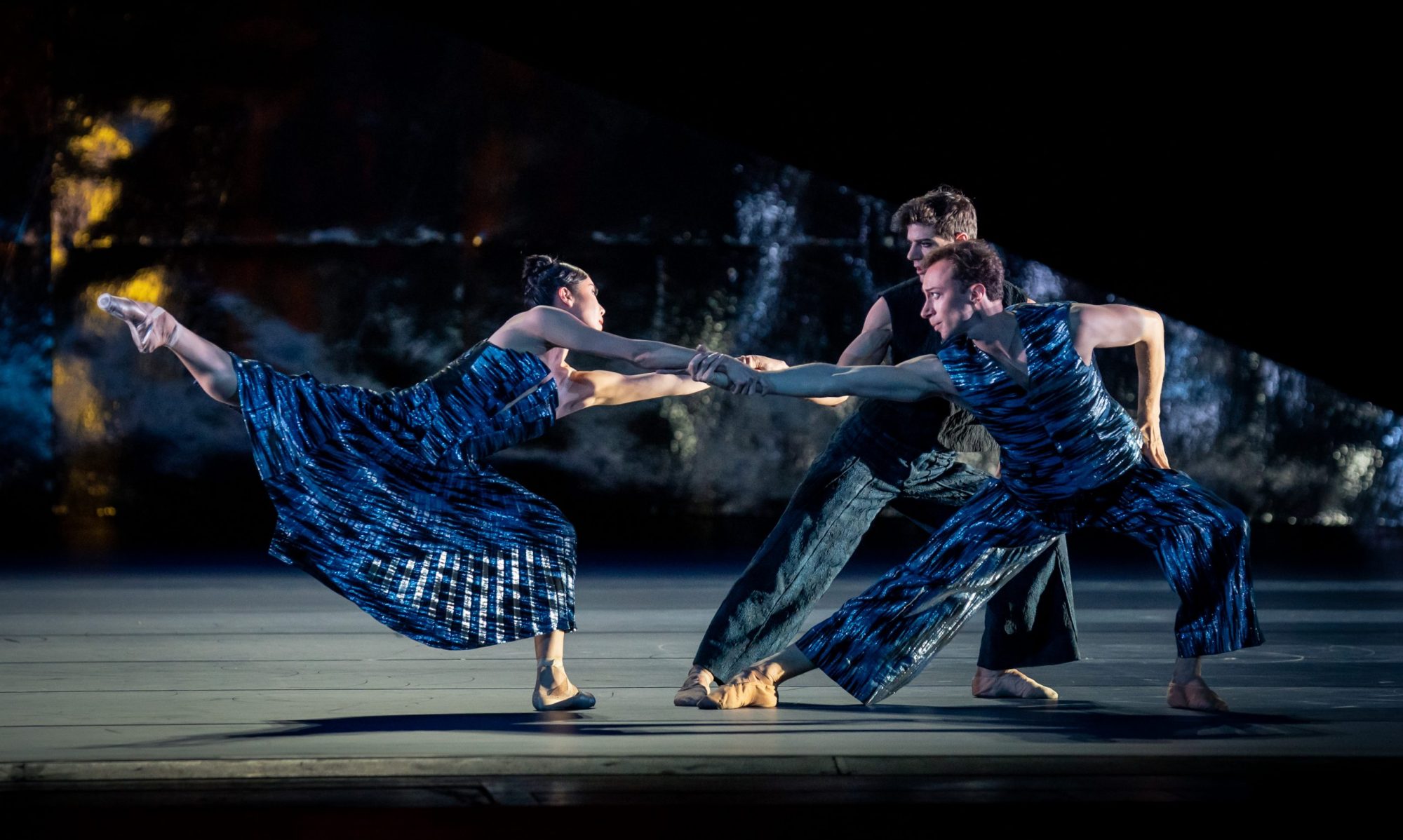Wiebke Hüster / Frankfurter Allgemeine Zeitung (FAZ)
by Ilona Landgraf
Copyright © 2023 by Ilona Landgraf
Some days ago, an article by Wiebke Hüster, leading dance critic of Germany’s Frankfurter Allgemeine Zeitung, caught my attention (FAZ, October 07, 2023). Hüster wrote on the upcoming premiere of “Last Work” at the Hessian State Ballet. “Last Work” is by the Israeli Ohad Naharin – and he was the one Hüster objected.
When Naharin celebrated his seventieth birthday last year, Hüster heaped praise on him. Why has the wind suddenly changed? Why have Naharin as well as the Hessian State Ballet come under Hüster’s fire? Her critique isn’t directed towards Naharin’s ballets, but towards his extension of the license for another work: “Minus 16”, for the Stanislavsky Ballet, Moscow, to be revived this November. I saw “Minus 16” during its 2019 run and was stunned by the Stanislavsky Ballet’s powerful performance. The dancers were so strong that “Minus 16” won Russia’s annual Golden Mask Award for the best contemporary piece.
But back to Hüster, who labels Naharin a supporter of Russia, what in Germany is equated to moral condemnation. His political position on Israel and Palestine – expressed in a statement included in the article – seems not quite kosher for Hüster either. In any case, it’s inexplicable to her that the Hessian State Ballet acquired a piece by someone like Naharin. Anyway, “Last Work” premiered successfully. Even Hüster’s FAZ colleague Melanie Suchy wrote a favorable review.
Hüster’s reproaches don’t stop at the Hessian State Ballet, but stretch to the Bavarian State Ballet and the Semperoper Ballet Dresden for keeping their ties to Nacho Duato. Duato, former artistic director of the State Ballet Berlin, assumed the same position at St. Petersburg’s Mikhailovsky Theatre in 2019. Hence he, too, is a no-go for Hüster. Upon request, both companies told the FAZ that they wouldn’t be bothered about Duato’s place of residence and work.
Hüster’s list of wrongdoers also includes Marco Goecke, whose “The Big Crying” will be part of a triple bill at the Stanislavsky Ballet in summer 2024. As a side note: after a time out following the widely reported clash between Hüster and Goecke in Hanover, his pieces have returned to western stages.
Not shy to extend her critique to companies abroad, Hüster moreover complains that Tamara Rojo, artistic director of the San Francisco Ballet, hasn’t answered her inquiries about Yuri Possokhov, the company’s resident choreographer. As Possokhov regularly choreographs for the Bolshoi Ballet, Hüster expected at least an explanation. Possokhov himself didn’t answer her efforts to get in contact either.
Hüster’s attempts to purge western ballet from connections to Russia largely failed. Why did she publish her article at all? It seems like a shot in her own foot.



